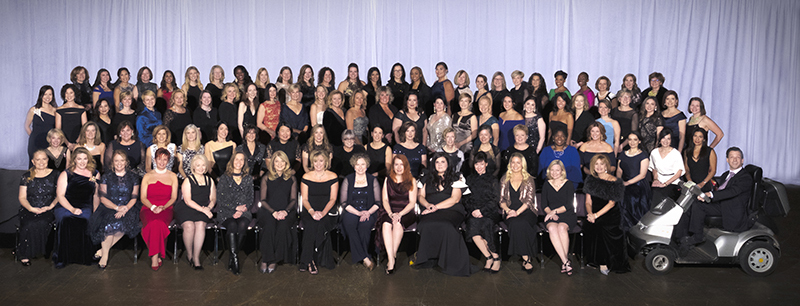
Diversity is crucial for the future of finance, say some of Canada’s most powerful women
It wasn’t easy climbing the ladder as a woman in business, says Joy Thomas, chief executive officer of CPA Canada and a recent winner of the Women’s Executive Network (WXN) Canada's Most Powerful Women: Top 100 award. But, doing so left her with a determination to smooth the path for others who might not fit the mould.
“There are those who go through a difficult career journey and say, ‘I did it, so you can, too’. I don’t buy into that,” says Thomas. “My career began in the ‘80s and women had some pretty significant challenges climbing up the ladder. I chose, wherever I could, to make the journey better for all that followed — women and men.”
That challenge framed Thomas’ leadership style, which she describes as authentic and focused on long-term results. “I really care about employees,” she says. “I want everyone to have a positive experience, to be challenged, to experiment and learn, and to not be afraid of setbacks.”

The winners of the Women’s Executive Network Canada’s Most Powerful Women: Top 100.
The Top 100 award pays tribute to women who have advocated for diversity in the workforce and who serve as an inspiration for the next generation of leaders. Eight other female CPAs were among the women honoured at a gala event in November.
Being a woman in a male-dominated field translates to an appreciation of diversity—in the broadest sense of the word, says Darlene Dasent, chief financial officer of University Health Network, another CPA named to WXN’s list.
Empathy an important skill for leaders
“I’ve had the privilege of just being me,” says Dasent. “Women understand that perspective of bringing work life and home life [together], being caregivers to parents and children. That affects my ability to be empathetic, which helps me as a leader.”
But, it’s not just about being willing to hire and promote more women. Everyone comes to work with a unique point of view, and leaders who invite everyone to the table can help create a stronger organization, explains Dasent.
“Being a woman, I understand that every person brings their unique background and experience,” she says. “To me, diversity is much broader than gender and race. What’s crucial is to have diversity of thought and perspective.”
To create that kind of diversity, Dasent actively tries to hire staff members with varying styles who bring new and unique perspectives to the team.
“When we look at our finance ranks, we have people who don’t have a traditional finance background. We have a lot of different people. It’s about putting time into the questions you ask. It’s about having the objectivity to look at strengths.”
Hard skills invaluable for women
While there’s widespread perception that female leaders bring a wealth of soft skills to their workplaces, the perception may be an oversimplification of the truth. For Sophia Tsui, senior vice-president and chief auditor at HSBC Canada, relational skills aren’t solely the domain of female leaders.
“I don’t often think about it from a gender perspective,” explains Tsui, another CPA who was named to the list of Canada’s most powerful women. “I have spent most of my career working for men…but men and women are all quite different. I’m more a softer approach type of person, but I’ve looked at the best skills of all the people I’ve worked for, and I take what is natural for me.”
Soft skills such as negotiation, presentation, active listening and collaboration have been valuable in her leadership roles, says Tsui. But, the technical skills she brings to her work as a CPA have been equally valuable to her career, says Tsui. “What really helps is if you do [CPA certification] quite early, if you do it when you come out of school; you see the benefits over time. You have technical, analytical, risk management, and professional management skills.”
Encouraging young women
Tsui is encouraging her high-school-aged daughter to consider accounting as a foundation for the business career she desires. “It’s a good launching point,” she says. “She’s in Grade 11 right now, and she’s decided she wants to do business. She’s good at math, and I say: ‘You’d be good at this.’”
Dasent agrees that a CPA designation can help set a woman up for success in business.
“Being a CPA has been tremendous,” enthuses Dasent, explaining that her early years as an auditor at Ernst & Young and PricewaterhouseCoopers provided solid business training. “Those early years in the world of audit, the ability to go to different companies and see the business from the inside out, was incredibly valuable.”
“Getting my designation was by far the most important jumping off point in my career,” says Thomas. “It taught me technical capabilities and helped me early on to build highly disciplined approaches to whatever task is at hand. Most importantly, it exposed me to an ethical framework in my decision-making.”
Encouraging women to become accountants is part of a broader movement to create diversity within the profession, Thomas says. An inclusive approach will help the finance industry adapt to a changing world.“Anticipating change and preparing for the future is vital,” she explains. “Change will continue to disrupt business models and alter the future of work, but it also will create new opportunities for professional accountants.”